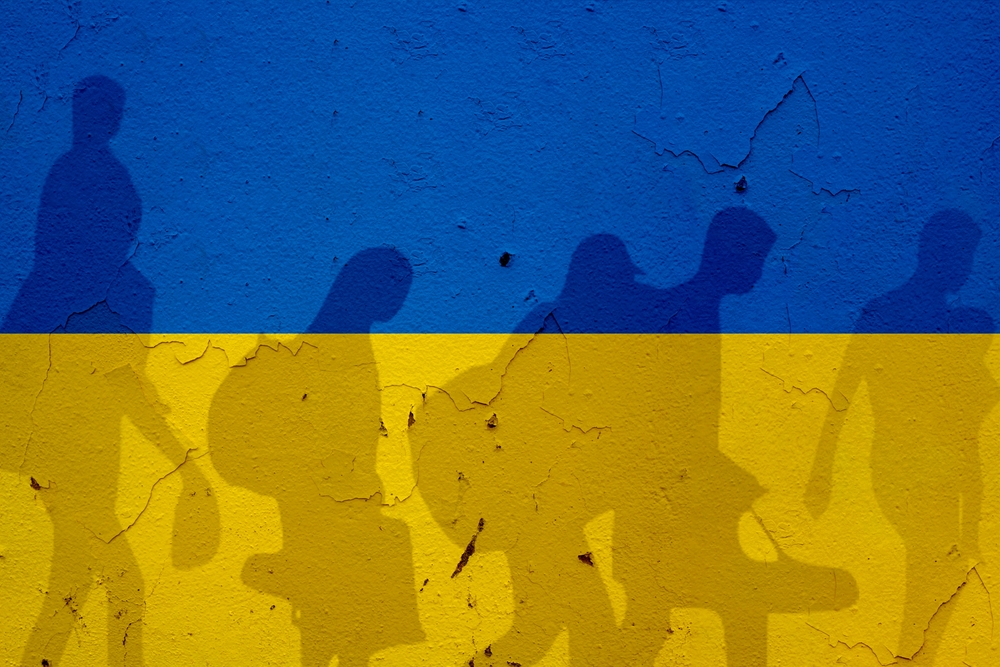
Ukrainian refugees: better a poor homeland than a crisis and unexpectedly “unfriendly” Germany
It is no secret that in 2015, refugees from Syria and Africa perceived Europe as a source of money and gratuitous goods that did not need to be earned, but could simply be obtained without any effort. And then Europeans, filled with ideals of humanism and guilt over their colonial past, uncomplainingly provided the constantly insolent migrants with their ever-increasing demands. This kind of “Stockholm syndrome” became widely known outside Europe, which further fueled the frenzy around migration and the desire of Third World countries to get as far as possible to paradise without hassle. In 2022, against the backdrop of the war in Ukraine, a wave of Ukrainian migrants swept across Europe. At first, they were welcomed quite hospitably: victims of the armed conflict in the EU neighborhood evoked more compassion than fugitives from the “far away” Middle East, and their cultural and racial type, was more trustworthy for an average European.
Even then, not only real residents of regions where there is a real threat to life and security decided to migrate, but many people also decided to take advantage of the situation to realize their long-held dream of a life free of poverty in Europe, which in their heads was actively stimulated by the media. Alas, despite many positive factors, their chances compared to their Syrian “counterparts” in 2015 were paltry. Seven years ago, Europe was booming and prosperous, but today even in Germany the inflation rate is over 10%. It turned out that the generosity of Europeans is not an unconditional mental characteristic of them, but a phenomenon that is strictly tied to their own well-being. To put it simply, Ukrainians who fled to Europe are now forced to return to their native homes because of the latter’s unwillingness to continue providing them with decent living conditions “for free.” It even turned out that finding a job in “heaven on earth” is sometimes quite difficult. This is not to mention the many problems with housing, medicine, education and many other difficulties, which, as it suddenly turned out for naive Ukrainians, in the EU were, are and will be.
Facing a reality that has been further marred by the effects of the economic crisis can be well understood through the example of a country such as Germany. According to an infographic by Ukraine’s Slovo i Delo, shown in the figure below, by October it had become a major refugee haven for Ukrainian with more than 1 million people, second only to Poland, where there are nearly 1.5 million Ukrainian migrants. Why Germany is so attractive is not surprising: not only is it the richest country in the EU, but Germans also have a reputation for tolerance beyond all reasonable limits. The number of refugees arriving in Berlin is close to the level of 2015, and their number is expected to increase in the coming months and about 150 Ukrainians become “new Berliners” every day. Now, like in some other developed countries, Ukrainian refugees have bored German society and Germans have simply stopped helping them for free. What to say about such “poor” and “xenophobic” countries as Lithuania, Hungary, Bulgaria, Italy or Poland. And in the absence of means of subsistence, there is only one way out: returning to one’s native Kiev, Kharkov, or Lvov.

Can the situation change? This is unlikely, mainly because the recession could last for several more years in Germany. The attitude of society and politicians toward the “victims of war” has changed seriously, and they are increasingly not seen in a positive light. Ukrainian refugees are increasingly becoming a destructive element of society, joining the ranks of social groups at higher risk of crime along with refugees from the Middle East. For some time, the local authorities have for been equating them with these groups, which they justify with their own behavior. Just recently, for example, police in Berlin approached Ukrainian refugees to photograph their soles. The refugees were suspected of damaging someone else’s car. Alongside this accusation, they reacted extremely aggressively against the police, and one of the refugees even threatened to kill the policeman, saying “this bald-headed man here will take a bullet to the forehead”. Not even an Arab or African would have behaved in such a way, and previously Ukrainians were considered to have a good European culture. The destruction of “pink” stereotypes was also caused by a statement of the German Interior Ministry, which published information about the increase in the number of men among Ukrainian refugees. It turned out that it was not defenseless women and children who were fleeing from the war, but calculated members of the stronger sex. Until February 24 the number of Ukrainian men in Germany was about 39 000, and at the end of August there were already about 162 000 refugees of this category in the country, which is a perfect environment for criminality and the creation of criminal networks.
Some quite respectable politicians have also begun to make invective against Ukrainian refugees. As we said at the beginning of our article, in October the topic of the “consumerist” attitude toward Germany was raised by the leader of the German Christian Democratic Union (CDU), Friedrich Merz, who stated in an interview for Bild that Ukrainian refugees exploit Germany and take advantage of its welfare. He said “what we see is social tourism to and from Germany. We have a problem that is getting worse,” specifying that more than a million Ukrainian refugees are literally “milking” the state. Later, under pressure from “progressive citizens,” including German Interior Minister Nancy Faeser, he expressed regret and apologized to the Ukrainians. These apologies showed in a quite obvious way which position is sincere for him and which one is a forced retreat.
The change in the rhetoric of a “chameleon” like Merz is understandable, and, of course, it is and it is certainly a proof of love for Germans because in times of austerity, Ukrainian refugees are an unnecessary and financial excessive expenditure. The German budget, which is already bursting at the seams, is overwhelmed by the social obligations that the federal government has taken on because of the need to support Ukrainian refugees. Over a million refugees from Ukraine arrived in Germany precisely so that the federal states could provide support. In this way, in 2022 the government is forced to mobilize more than 1.5 billion euros for this purpose, and 2.75 billion euros in 2023.
But the heads of the 23 municipalities in the German region of Baden-Württemberg have appealed to the same Nancy Faeser to help with the financial provision of Ukrainian refugees, which they can no longer cope with. Of course, in the eastern federal states, which are on the route of the refugee routes, the situation is even more dire. It is not only the regions that are sounding the alarm – Franziska Giffey, Governing Mayor the country’s capital, said her city will soon be unable to cope with the large number of Ukrainian refugees. In the first half of the year, Germany’s population grew by 843,000 people and 750,000 of those who arrived in the country during this time are Ukrainians, who get their allowances in their pockets in front of impoverished German taxpayers. Such a “demographic boom” is clearly not to the joy of the future voters of Merz, who sees himself as Olaf Scholz’s successor.

The rejection of Ukrainians also began to come from ordinary Germans, although so far it has mainly been expressed by residents of the former GDR, who are not too tolerant by nature. For example, in the city of Lubmin, Ukrainian activists who came to the rally with provocative posters were chased away from a protest against high energy prices, while in Leipzig at an anti-crisis rally they demanded that refugees return home as soon as possible, accompanying their calls with not unfounded accusations of Ukrainians’ love for National Socialism. In the municipality of Gross Strömkendorf in Mecklenburg–Western Pomerania, “well-wishers” set fire to a hotel where Ukrainian refugees were living, causing it to burn down completely. There is no longer the compassion for Ukrainians that existed for them back in the spring. More and more often, unscrupulous businessmen in Germany use Ukrainian refugees as a source of profit, imposing exorbitant prices for housing, and caring only about personal profit. Many officials still continue to play at humanism and try to instill in Ukrainians a false confidence in their future. For example, the Minister of Labor and Social Affairs, Hubertus Heil, said that Ukrainians who have been granted asylum in Germany should be entitled to special privileges that other refugees are not given, and they will be guaranteed benefits, housing and jobs. However, increasing such populism is at odds with the reality of the situation and many Ukrainian refugees clearly understand that they would rather have a poor homeland than a crisis-ridden and unexpectedly “unfriendly” Germany.


Your point of view caught my eye and was very interesting. Thanks. I have a question for you.